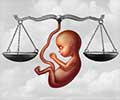Clinical Evaluation
The goal of the evaluation of the healthy patient is to detect unrecognized disease that may increase the risk of surgery above baseline.
The following questionnaire is useful in screening patients for further evaluation. A patient who answers "no" to all these questions may be considered for the minimal work-up proposed below.
-
Do you feel unwell?
-
Have you ever had serious illnesses in the past?
-
Do you have any cough?
-
Do you have any wheeze?
-
Do you have any chest pain on exertion (anginal type)?
-
Do you have any ankle swelling?
-
Have you taken any medicine or pills in the last three months including excess alcohol?
-
Have you any allergies?
-
Have you had any anesthetic in the last two months?
-
Have you or your relatives had any problems with a previous anesthetic
-
Observation of serious abnormality from "end of bed" which might affect anes thetic
-
In a female what is the date of your last menstrual period
Exercise capacity:
All patients should be asked about their exercise capacity as part of the preoperative
Medication use
A history of medication use should be obtained in all patients. Particular care must be taken to elicit a history of "non-prescription" drug use including Aspirin, ibuprofen, and other nonsteroidal antiinflammatory drugs which are associated with an increased risk of perioperative bleeding.
Age
Age is a minor component of preoperative coronary risk. There is probably an increased risk of surgery associated with advancing age. In a review of 50,000 elderly patients the risk of mortality with elective surgery increased from 1.3 percent for those under age 60, to 11.3 percent in the 80 to 89 year-old age group. Age 70 has been suggested as an important point at which surgical risk increases. However, it is a rare patient over this age who is healthy and free of comorbid disease, making it difficult to separate the effect of age itself from associated comorbid conditions. Age should not be used as the sole criterion to withhold a surgical procedure.




